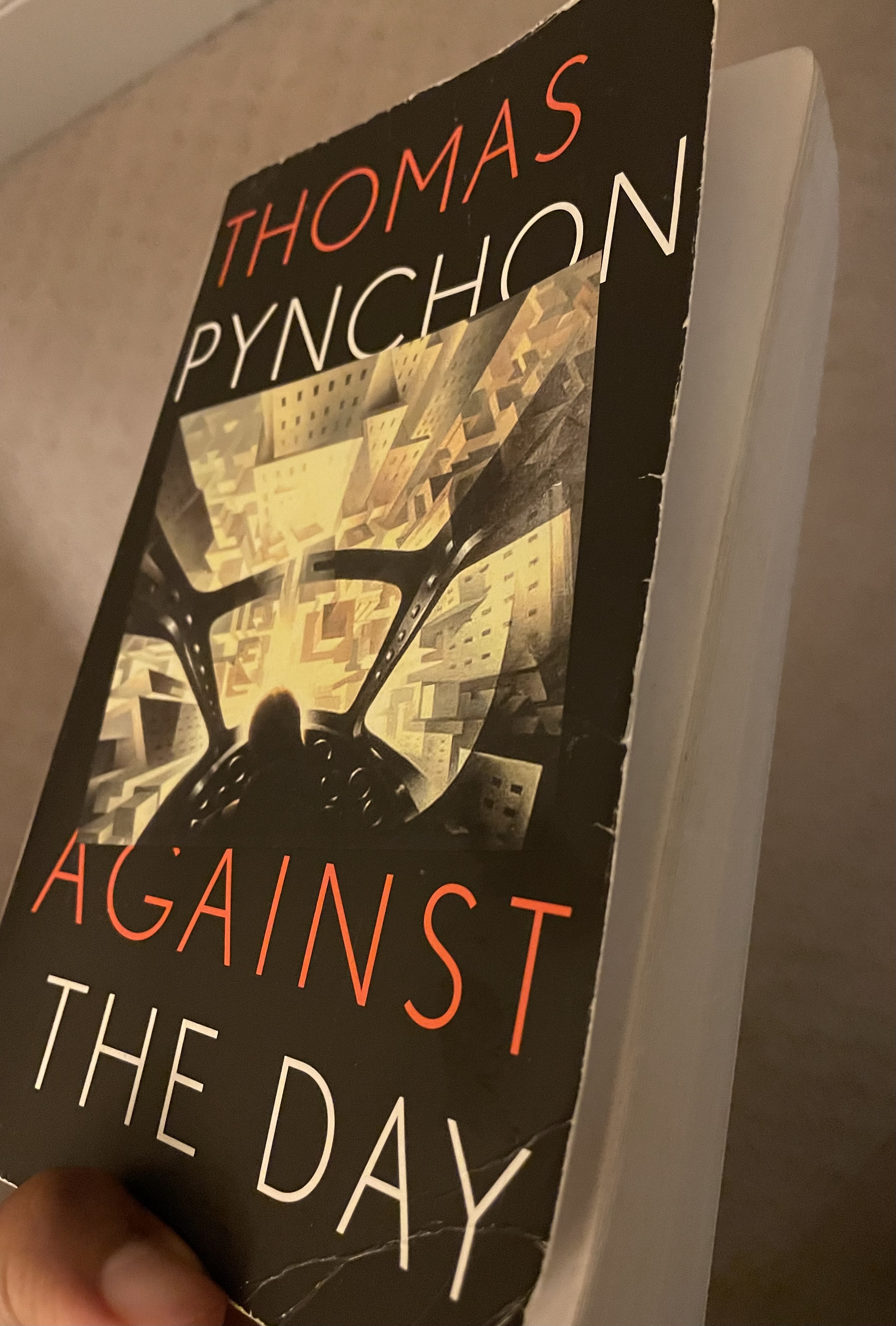I just finished reading this, after several years.
I had picked this up in 2015 after reading Crying of Lot 49, V and Gravity's Rainbow in the two years before.
But then there was a gap of several years and I picked it up again last year.
About half-way through I began to actively resist finishing it, which was amusing.
I resisted looking up anything about the book before I read it, or while I was reading it, so I let myself do it now, and went through some critical reviews that I found.
who see the world as we live in it, which is less a place than an experience of a place, mediated by the collective sum of human activity
Broadly speaking, historical fiction falls into two categories: romance (what if…?) and tragedy (hindsight is 20/20). The appeal of both approaches is more or less self-evident, as are the limitations, and they’re basically the same thing: historical fiction reminds us of something we’ve lost—a powerful and important memorial that all too often effaces the thing it attempted to invoke.
"Do the math" from the New Yorker
We know (roughly) how it all turned out, but if we had been living in those years it would have been impossible to sort out the fantastical possibilities from the plausible ones
So what was Pynchon thinking? To begin with, he was apparently thinking what he usually thinks, which is that modern history is a war between utopianism and totalitarianism, counterculture and hegemony, anarchism and corporatism, nature and techne, Eros and the death drive, slaves and masters, entropy and order, and that the only reasonably good place to be in such a world, given that you cannot be outside of it, is between the extremes.
It’s all story- telling, all narrative, but Pynchon doesn’t want you to get hung up on what will occur on the final page, just trust that it will feel complete & that the journey itself is what matters
He really wants you to luxuriate in the story-weaving process and the way to make you focus on it is to remove the elements of writing (e.g. narrative closure) that flip us away from the process to an imaginary universe of reference. The whole point of having the air ship Inconvenience, which starts out blimp-like & ends up rather more like a dream of Miyazaki’s, a city floating in the sky, having this airship travel upward from the south pole to the north via a hidden tunnel that connects the two – don’t think too hard about the gravitational impossibility of this – is that it is ludicrous, but it’s the ludic Pynchon wants you to see.
(I'll be honest, this one was the best!)
a longing at the heart of Against the Day, a tortured desire to redeem and amend—the theme is taken up as vengeance but played out as nostalgia
The final pages of the novel offer a frazzled sentimental tale of coupling and growing old, where antique outlaws are domesticated and matters come more or less right only in the way they go more or less wrong. The idea of time travel, though lugged in for laughs, suggests a hankering to go back and fix things (in science fiction, the theme usually turns into tragic farce—tragedy if you like science fiction, farce if you don’t). Yet when men arrive from some indefinite future, fleeing some unimaginable global catastrophe, they seem only to want to be left alone, the most pitiable of refugees.
So far, of the four I have read, this is his best book.
A picture of my copy:

